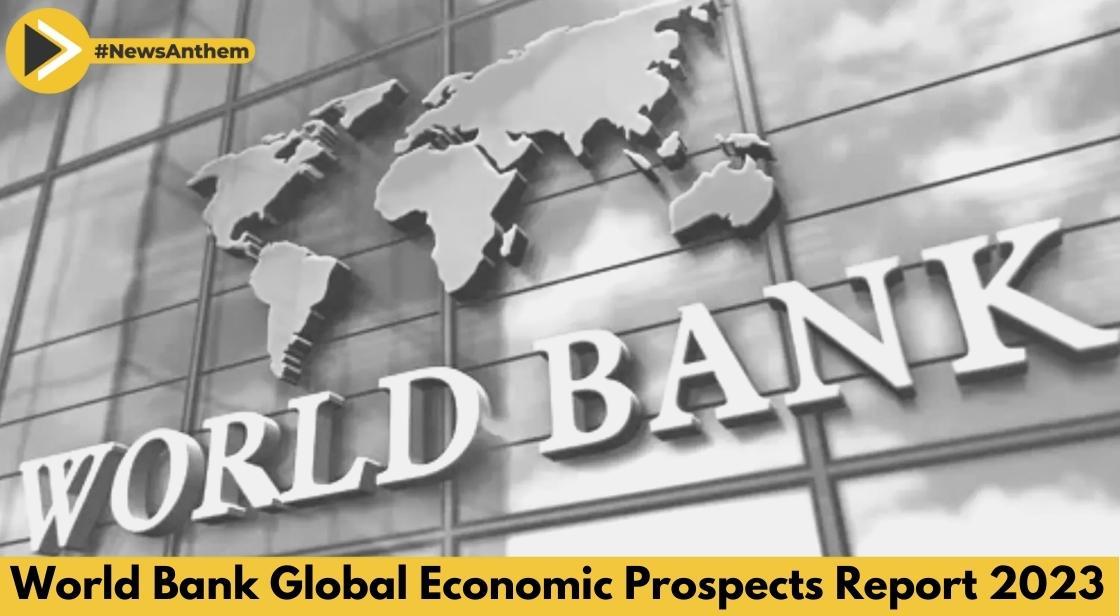Weak Economic Conditions Might Lead To Recession- World Bank Report

News Synopsis
According to the most recent Global Economic Prospects Report from the World Bank, the global economy is severely dropping as a result of high inflation, rising interest rates, reduced investments, and disruptions brought on by Russia's invasion of Ukraine.
The first thorough analysis of the medium-term prospects for investment growth in emerging and developing nations is presented in this document.
Any additional negative occurrence, such as higher-than-expected inflation, a sudden increase in key interest rates to curb it, a return of COVID-19 cases, or growing geopolitical tension, might plunge the world economy into recession given its precarious status.
As stated in the research, "Investment growth in Emerging Markets And Developing Economies (EMDEs) is expected to remain below its average rate of the past two decades. Further adverse shocks could push the global economy into yet another recession. Small states are especially vulnerable to such shocks because of their reliance on external trade and financing, limited economic diversification elevated debt, and susceptibility to natural disasters."
This would mark the first time in more than 80 years when two worldwide recessions took place in the same decade, according to the World Bank. In 2023 and 2024, respectively, the world economy is projected to increase by 1.7% and 2.7%.
In emerging and developing economies, per capita income growth is anticipated to average 2.8% during the next two years, which is 100 basis points less than the average from 2010 to 2019.
According to the World Bank, growth in per capita income in Sub-Saharan Africa, which is home to around 60% of the world's extreme poor, is predicted to average just 1.2% between 2023 and 2024. At this rate, poverty rates may increase.
The World Bank Group President, David Malpass, stated that "The crisis facing development is intensifying as the global growth outlook deteriorates,"
Mr. Malpass continued, "Emerging and developing countries are facing a multi-year period of slow growth driven by heavy debt burdens and weak investment as global capital is absorbed by advanced economies faced with extremely high government debt levels and rising interest rates,"
The President continued, poor business investment and development will exacerbate already disastrous trends in infrastructure, health, education, and poverty, as well as the mounting demands of climate change.
In addition, the research predicts that growth in advanced economies would decrease, falling from 2.5% in 2022 to 0.5% in 2023.
Growth forecasts for the current economic conditions
Growth in the US is projected to slow to 0.5% in 2023, which is 1.9% points less than what was previously predicted. In 2023, the eurozone's growth is projected to be 0%, down 1.9% points from the previous year. In 2023, growth in China is forecast to be 4.3%, which is 0.9% less percentage points than the previous projection.
By the end of 2024, GDP levels in emerging and developing economies will be about 6% lower than they were before the epidemic. Although it is predicted that worldwide inflation would moderate, it will still be higher than it was before the pandemic.
According to the World Bank, "Over the past two decades, slowdowns of this scale have foreshadowed a global recession," The research calls on the international community to support small countries by continuing the flow of official funding in order to enable climate change adaptation and aid in restoring debt sustainability in the face of such a dire global economic outlook.
The World Bank also gave policymakers in small nations advice on how to boost long-term growth prospects by boosting climate change resilience, promoting efficient economic diversification, and enhancing government effectiveness.
You May Like









